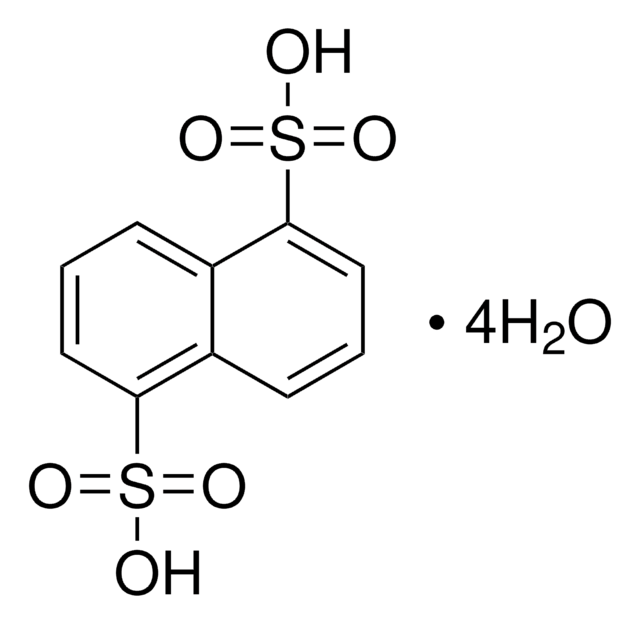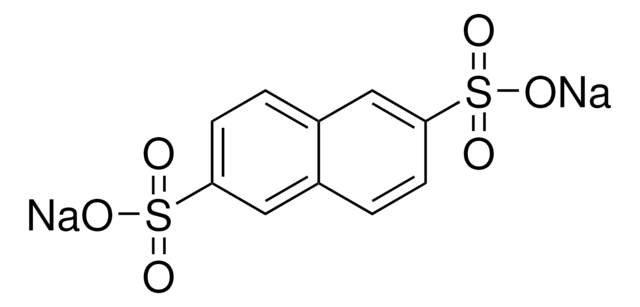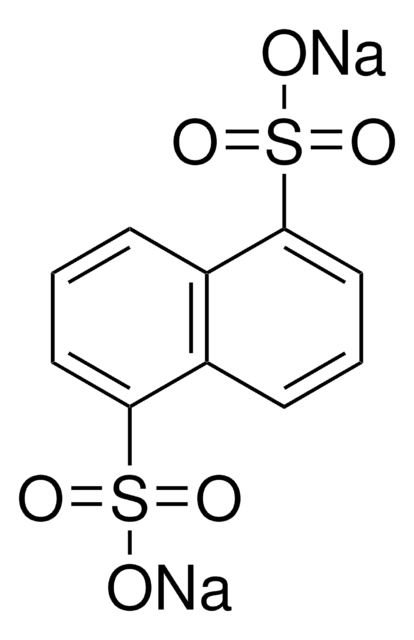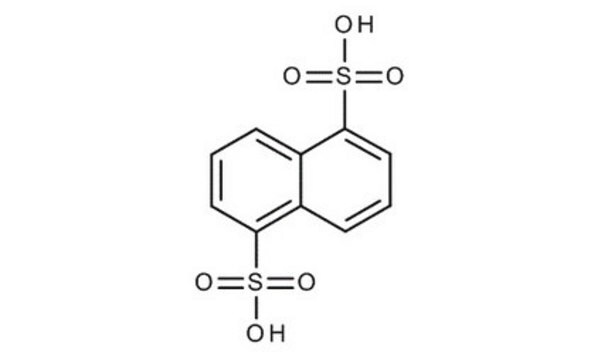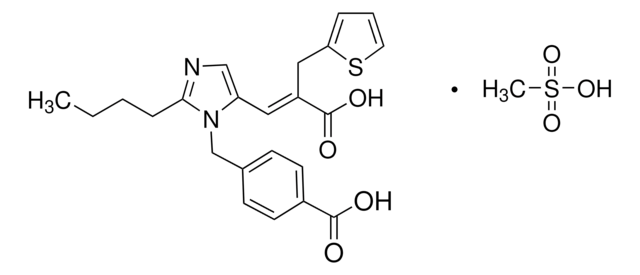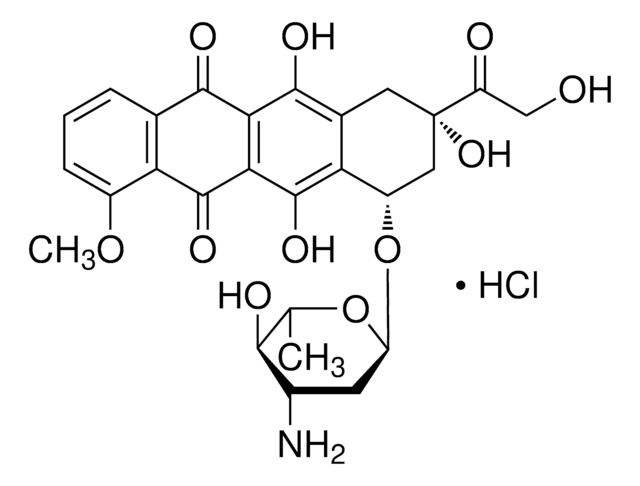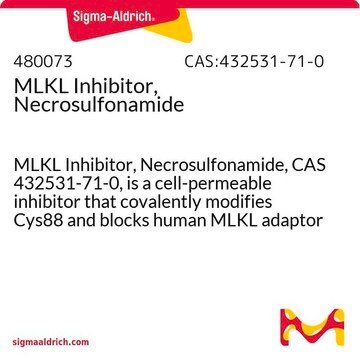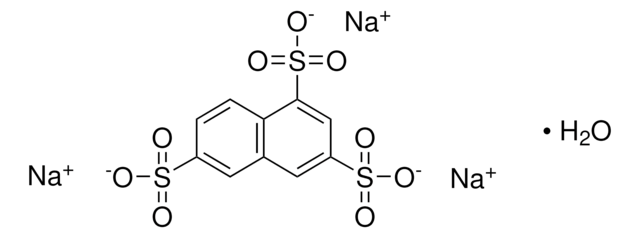249548
2-Naphthalenesulfonic acid
technical grade, 70%
Synonym(s):
β-Naphthalenesulfonic acid, 2-Naphthylsulfonic acid, 2-Sulfonaphthalene
Sign Into View Organizational & Contract Pricing
All Photos(2)
About This Item
Linear Formula:
C10H7SO3H
CAS Number:
Molecular Weight:
208.23
MDL number:
UNSPSC Code:
12352100
PubChem Substance ID:
NACRES:
NA.22
Recommended Products
grade
technical grade
Quality Level
Assay
70%
form
solid
solubility
water: freely soluble(lit.)
functional group
sulfonic acid
SMILES string
OS(=O)(=O)c1ccc2ccccc2c1
InChI
1S/C10H8O3S/c11-14(12,13)10-6-5-8-3-1-2-4-9(8)7-10/h1-7H,(H,11,12,13)
InChI key
KVBGVZZKJNLNJU-UHFFFAOYSA-N
Gene Information
human ... EGFR(1956) , LCK(3932)
General description
The fluorescence of 2-naphthalenesulfonic acid (NSA) is effectively quenched by colloidal silver via photoinduced interfacial electron transfer from the excited singlet of NSA to silver. Adsorption behavior of NSA on a conventional macroporous resin Amberlite XAD4 and hypercrosslinked resins NDA101 and NDA100 has been investigated.
Physical properties
Contains up to 15% sulfuric acid
Signal Word
Danger
Hazard Statements
Precautionary Statements
Hazard Classifications
Eye Dam. 1 - Met. Corr. 1 - Skin Corr. 1A
Storage Class Code
8A - Combustible corrosive hazardous materials
WGK
WGK 3
Flash Point(F)
Not applicable
Flash Point(C)
Not applicable
Choose from one of the most recent versions:
Already Own This Product?
Find documentation for the products that you have recently purchased in the Document Library.
Customers Also Viewed
Doyeon Lee et al.
Sensors (Basel, Switzerland), 18(6) (2018-06-09)
Detection of salivary pepsin has been given attention as a new diagnostic tool for laryngopharyngeal reflux (LPR) disease, because saliva collection is non-invasive and relatively comfortable. In this study, we prepared polypyrrole nanocorals (PPNCs) on a screen-printed carbon electrode (SPCE)
Colloidal silver as a quencher for the fluorescence of 2-naphthalenesulfonic acid.
Zang L, et al.
Journal of the Chemical Society. Chemical Communications, 4, 447-448 (1995)
Sabine Neuberger et al.
Analytical and bioanalytical chemistry, 408(30), 8701-8712 (2016-07-14)
Capillary electrophoresis is commonly applied for the analysis of pharmaceutical products due to its high separation efficiency and selectivity. For this purpose, electrospray-ionization-(ESI)-interfering additives or electrolytes are often required, which complicates the identification of impurities and degradation products by mass
Binary competitive and cooperative adsorption of aromatic compounds on polymeric resins.
Zhang W-M, et al.
Chinese Journal of Polymer Science, 23(05), 503-511 (2005)
Sabine Neuberger et al.
Journal of pharmaceutical and biomedical analysis, 134, 122-129 (2016-12-03)
In order to ensure the stability of pharmaceutical products appropriate manufacturing and storage conditions are required. In general, the degradation of active pharmaceutical ingredients (APIs) and subsequent formation of degradation products affect the pharmaceutical quality. Thus, a fast and effective
Our team of scientists has experience in all areas of research including Life Science, Material Science, Chemical Synthesis, Chromatography, Analytical and many others.
Contact Technical Service

